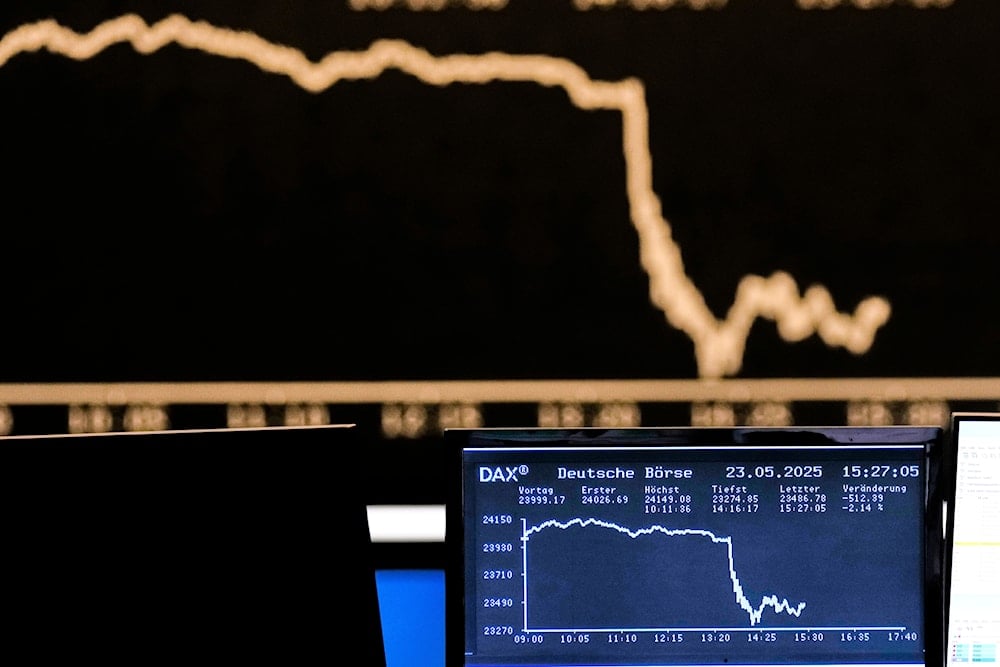Tariffs weigh on US manufacturing for third straight month
US manufacturing activity declined for the third month in May, with the ISM index falling to 48.5%, as businesses cite tariff-related costs and supply disruptions under Trump's trade policies.
-

The curve of the German stock index DAX is seen on a screen at the stock exchange in Frankfurt, Germany, on May 23, 2025 (AP Photo/Michael Probst)
US manufacturing activity remained in contraction territory for the third consecutive month in May, as rising uncertainty over President Donald Trump's tariff policies continued to weigh on the sector.
According to data released Monday by the Institute for Supply Management (ISM), the manufacturing index dropped to 48.5%, remaining firmly below the 50-point mark that separates expansion from contraction.
The decline aligned with market expectations, reflecting widespread concern among manufacturers over demand conditions and ongoing trade disruptions.
ISM survey chair Susan Spence said: "Contraction in most of the indexes that measure demand and output has slowed, while inputs have started to weaken."
The latest survey data revealed a sharp 7.2% drop in the import index, while inventories and new export orders also saw significant declines. The figures underscore growing unease across industrial sectors facing higher input costs and global trade volatility.
Since his return to office in January, Trump imposed a baseline 10% tariff on most countries, with additional duties targeting steel, aluminum, and automobiles produced outside the United States.
Industry voices warn of supply crunch
Tariffs were a recurring theme in business responses to the ISM survey. A company in the computer and electronic products sector cited "government spending cuts or delays and tariffs" as factors "raising hell with businesses."
In the chemicals industry, a firm noted that most suppliers were passing on the cost of tariffs "at full value," framing them as taxes that inevitably fall on the customer, adding that “very few are absorbing any portion of the tariffs."
One manufacturer even compared the severity of current supply chain disruptions to those seen during the COVID-19 pandemic, warning of a potential crisis in sourcing critical materials.
Despite pushback from affected industries, the White House maintains that the impact of tariffs will be short-lived. Officials argue that the measures form part of a broader strategy aimed at stimulating growth through tax cuts and deregulation.
While many manufacturers remain skeptical, the administration has shown no indication of reversing course, signaling continued friction between trade policy and industrial recovery.

 2 Min Read
2 Min Read










